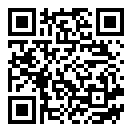Abstract:
In the discussion about the necessary and sufficient knowledge in religion, three important questions are raised in the Islamic epistemology: first of all, which type of knowledge can be achieved regarding the Islamic teachings? Is it possible to achieve certainty in its narrowest sense in religious matters? Secondly, given the possibility of such knowledge is it necessary to acquire it, or it is sufficient to have a guess, an ordinary type of knowledge, or conviction? Thirdly, if an ordinary knowledge or confidence were sufficient, what are the criteria for its validity?
Providing definitions for the terms “religion” and “epistemology” and their applications, and dividing certainty into common, specific, and the most specific one, the article argues that achieving the most specific certainty, is possible in some areas of religion, though acquiring such knowledge is not necessary. The views of some Muslim scholars, namely, Ayatullahs Qā„i Tabātabā’i, Mīrza-yi Qumi and Ma´āheri, as the only ones explicitly dealing with the issue, are discussed. The author criticizes Qā„i Tabātabā’i’s view that achieving the most specific certainty is necessary regarding the basic beliefs of Islam. Although others have not clearly addressed this issue, there are evidences in their writings pointing to the idea that achieving the most specific certainty is not necessary in matters of religion.










